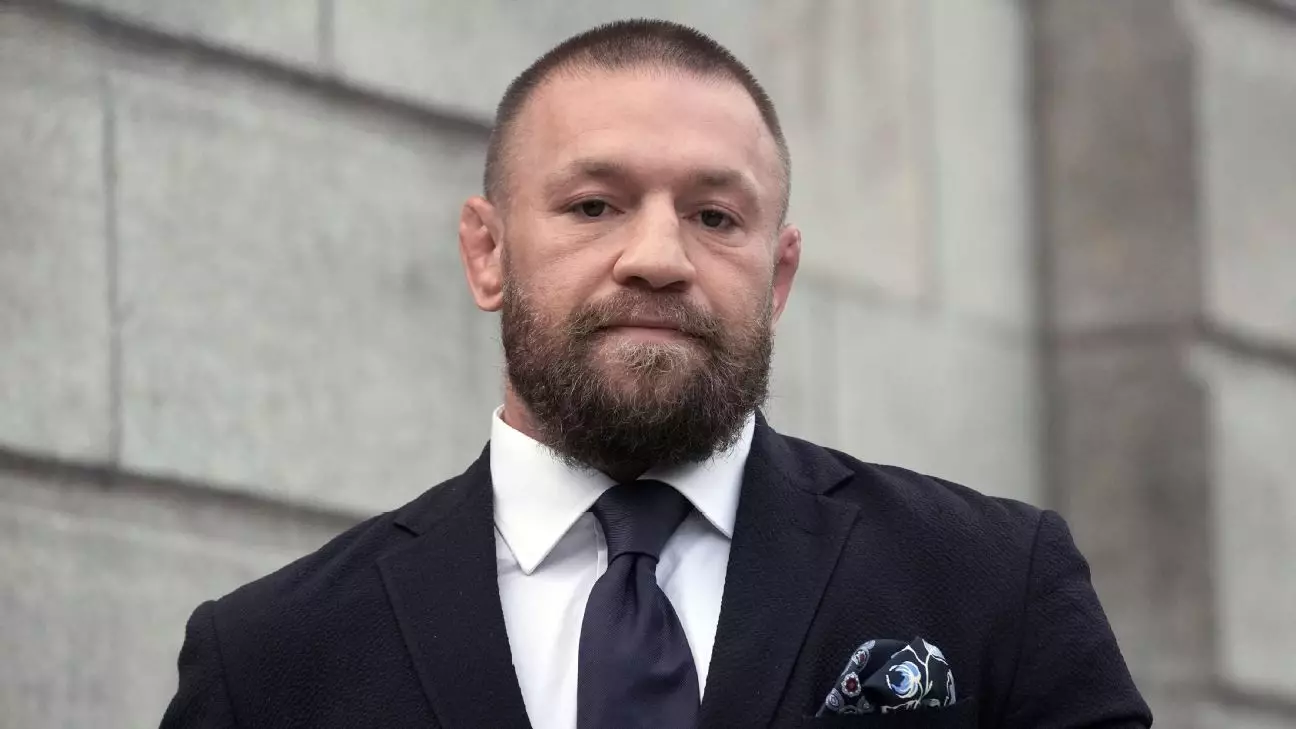The recent ruling by a jury in Dublin has sent shockwaves through the sports community, particularly the Mixed Martial Arts (MMA) universe. UFC sensation Conor McGregor has been ordered to pay 248,000 euros (approximately $257,000) to a woman who accused him of sexual assault, asserting that the incident occurred in December 2018 in a hotel room. The trial, which took place in the High Court of Dublin, concluded after several days of emotional testimony and careful deliberation, highlighting the complex dynamics between celebrity culture and the justice system.
The narrative of the case unfolded with the accuser recounting her traumatic experience after meeting McGregor at a Christmas party. She alleged that the fighter assaulted her, using violent tactics such as choking and coercion, which left her fearing for her life. One particularly harrowing detail emerged during the trial: a paramedic testified to witnessing severe bruising on the woman, describing it as unlike anything he had ever seen before in similar cases. The severity of these claims puts the focus squarely on McGregor’s actions and the possible ramifications of celebrity influence over the judicial process.
Contrasting Testimonies
McGregor vehemently denied the allegations, framing the encounter as consensual and asserting that the sexual activity was vigorous but not violent. He maintained that his accuser never expressed disinterest or attempted to stop what was happening. The fighter’s words reveal a stark contrast between his version of events and that of the accuser, highlighting the challenges in cases involving sexual misconduct, particularly when both parties have conflicting narratives. This dissonance complicates the judicial landscape, often leading to perceptions of victim-blaming, particularly when high-profile individuals are involved.
Legal Ramifications and the Role of Public Perception
The decision not to pursue criminal charges against McGregor initially raised questions about the efficacy of the legal system in handling accusations of sexual assault, especially those against well-known figures. Prosecutors highlighted that the evidence was insufficient to lead to a conviction, prompting concerns about how celebrity status influences public perception and potentially the legal outcomes. The defense counsel emphasized the need for jurors to set aside their feelings about McGregor due to his public persona, a request that serves to illuminate the biases that can arise in high-stakes legal cases.
Emotional Testimony and its Impact
The accuser’s testimony was particularly poignant, filled with distress as she recounted the threats made against her life during the alleged assault. Her vulnerability and emotional turmoil added weight to her accusations, often leading jurors to grapple with their own perceptions of the events described. As the jury listened, they were tasked not only with assessing the facts presented but also with considering the psychological impact of such incidents on victims, something that can often be overlooked in the eyes of public opinion. Understanding the emotional ramifications of sexual violence remains essential in providing a holistic view of the situation beyond simple legal principles.
This ruling comes at a critical time for McGregor, who has not stepped back into the octagon since sustaining a severe leg injury in 2021. His planned return to fighting has seen multiple setbacks, and this legal battle might further complicate his professional persona and brand image. The UFC, often seen as a platform for dominant fighters, might have to navigate the turbulent waters of public relations in light of their star’s recent legal troubles. McGregor’s anticipated “greatest comeback” now faces not only physical but also reputational hurdles.
In the end, the jury’s decision has implications that ripple beyond the courtroom, delving into larger conversations about accountability for abuse, the treatment of women in high-profile cases, and the responsibility of celebrities to set ethical examples. Ultimately, this ruling serves as a critical moment in the ongoing dialog surrounding sexual assault, consent, and the implications of power dynamics in society. As the dust settles, the case encourages deeper exploration into how we view justice, celebrity, and victim support in our increasingly complex world.


Leave a Reply